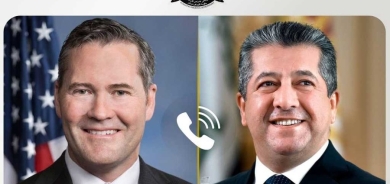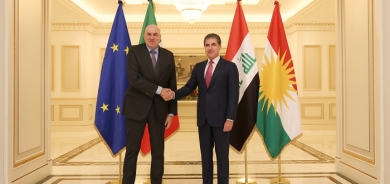Karol Edward Soltan to Gulan Magazine: It would be crucial for Kurdistan to build its coalition building potential in the world above all by becoming an international exemplar of good governa
January 7, 2012
Exclusive Interviews

The Professor Karol Edward Soltan is a Professor of Political Sciences in Maryland University and is one of those experts who are working on the International issues; in 2000 the Professor Soltan was the deputy manager of the United Nations’ political, constitutional, and elections office for the transitional stages in East Timor, in 2003 and 2004 he was one of the members in USAID Organization’s IRIS Project, and in the Summer of 2005 he spent few months in Kurdistan Region as a constitutional consultant for Kurdistan Regional Government and have participated in the Iraqi constitution’s negotiations. In order to discuss the consequences of the US withdrawal from Iraq, we have contacted the Professor Karol Soltan, and he expressed his views to us in an exclusive interview to Gulan Magazine as the following:I believe there will be quite a bit of continuity in American policy toward Iraq. The withdrawal has been going on for some time, and after the armed forces withdraw there will still remain an extremely large embassy, with a very strong security contingent. US influence has been declining, and will continue to decline, but it is more a continuous process.
I would say the main goal of American policy will be to maintain the appearance of success of the whole intervention in Iraq. Hence Americans will work to prevent what would count as obvious failure from the American point of view. Three things would be prominent examples of such obvious failure: the return of full scale civil war, the establishment of a clear dictatorship, and clear cut dominance of Iran.
Iraq has been and continues to be a fragile state, with pervasive corruption. The slow withdrawal of the US and the decline of American influence will not have a drastic influence here, I do not think. I would consider the potential of the Arab Awakening to be more important.
On Kurdistan: Kurdistan has two sources of power: oil wealth and soft power. Oil wealth remains a source of power as long as control over crucial decisions remains in Erbil. Soft power is more vulnerable, and arguably more important. It seems to me crucial for the security and long term autonomy of Iraq that Kurdistan remain, as they say “the Other Iraq,” a place that is not as corrupt as elsewhere, where democracy and human rights are relatively secure, where investments are secure too.
Consider the following scenario: Dictatorship is imposed in Baghdad, and there is imminent threat of an invasion of Kurdistan to impose it also in Erbil. What can protect Kurdistan at that point, other than the peshmerga? It will be the capacity to generate in such an emergency an international coalition to protect democracy in Kurdistan. If there is not much of a democracy in Kurdistan at that point, this will be very difficult, to say the least. But if Kurdistan is a shining exemplar of democracy, human rights protection and limited corruption, then such coalition has a much better chance of succeeding. It would be helpful, of course, if what we might diplomatically call the Turkey problem be also diminished at that point.
Mountains have been really good friends of the Kurds, but in a moment of future crisis it will be important that they not be the only friends. So in the meantime it would be crucial for Kurdistan to build its coalition building potential in the world above all by becoming an international exemplar of good governance: democracy, human rights, and limited corruption.















